The Daily Fail: Is British mainstream media systemically anti-LGBTQ?
Investigation: Media coverage of trans issues has reached new extremes, with filmmaker Charlie Craggs warning: “Dear lesbians and gays: they’re coming for you next.” Seriously, where do we go from here?
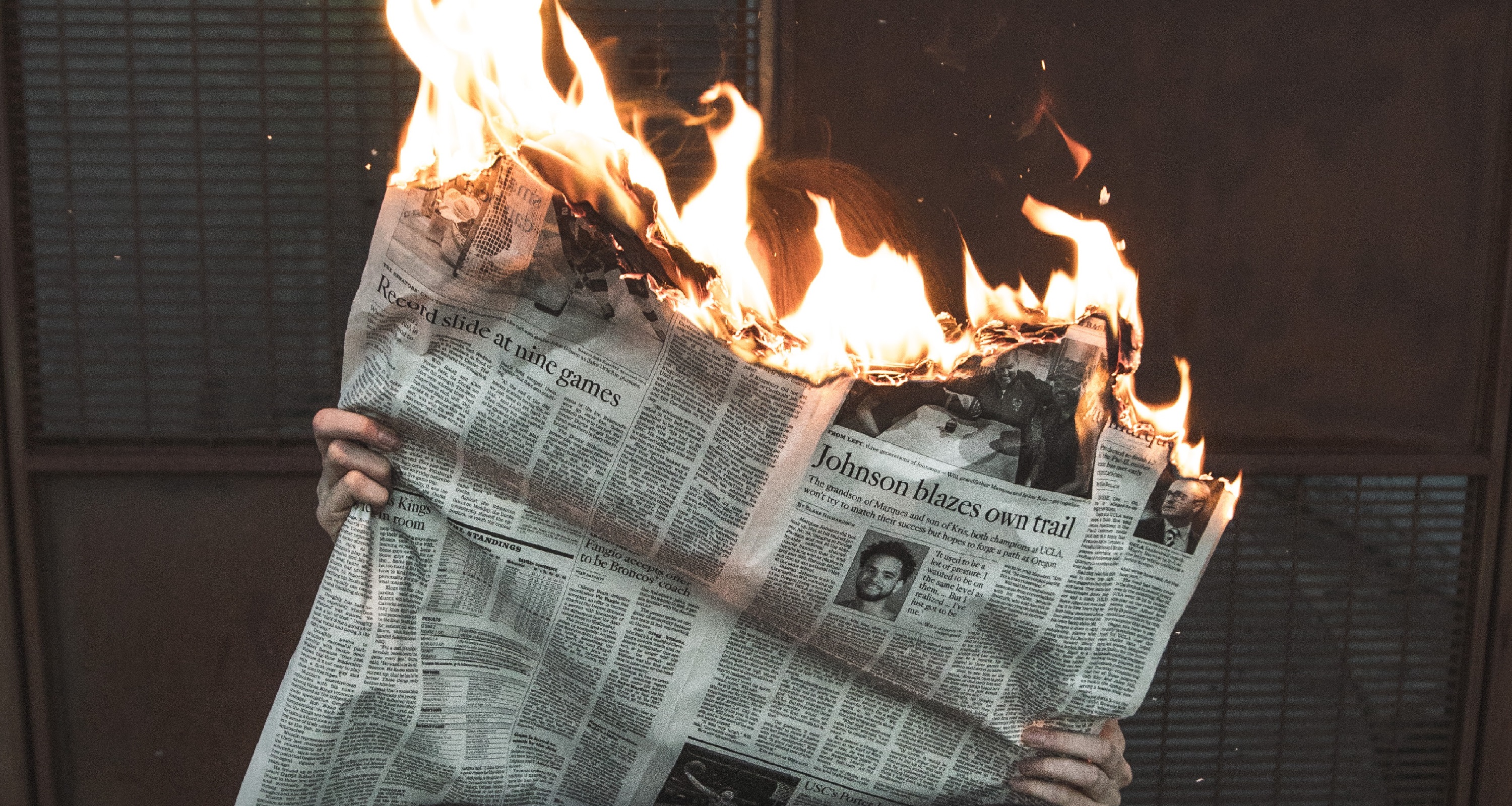
Words: Jamie Tabberer; picture: Pexels
‘NHS told to give out £5,000-a-year lifestyle drug to prevent HIV as vital cataract surgery is rationed’, read a Daily Mail splash on PrEP in 2016.
‘The skirt on the drag queen goes swish swish swish: trans classes for kids age 2’, led The Sun in a 2017 report on Drag Queen Storytime. (If Drag Race has taught us anything, it’s that too many drag queens are gay men.)
And the big one: ‘We’re being pressured into sex by some trans women’.
When published online by the BBC last October, those nine words (and the excessive 3,000+ that followed) made for some of the most inflammatory reading in recent memory. And while the Mail, The Sun and the BBC are hardly alone in publishing increasingly confrontational LGBTQ+ content — The Telegraph, The Times and even The Guardian are also common culprits — few articles have epitomised the problem so perfectly, or travelled as far, as this one.
In the article, journalist Caroline Lowbridge asked: “Is a lesbian transphobic if she does not want to have sex with trans women? Some lesbians say they are increasingly being pressured and coerced into accepting trans women as partners — then shunned and even threatened for speaking out.”
Among those ‘speaking out’ was lesbian porn actor Lily Cade — who, it later emerged, had published transphobic blogs calling for trans women to be “lynched”. (Her contribution to the piece was later removed.) The article was slammed as flimsy, sensationalist and irresponsible by many, with facts and data relating to a questionnaire seemingly completed by a small number of cis women.
Some 20,000 people called for the BBC to apologise. It didn’t. Instead, a statement issued to Attitude read in part: “The article looks at a complex subject from different perspectives and acknowledges it is difficult to assess the extent of the issue. It includes testimony from a range of different sources and provides appropriate context. It went through our rigorous editorial processes.”

Charlie Craggs in a promotional image for her BBC Three documentary Transitioning Teens (Picture: BBC)
Charlie Craggs, a filmmaker who is trans, and director of BBC Three documentary Transitioning Teens, tells Attitude: “My other trans friends in the media and I are emotionally exhausted. There are so few of us sticking our heads above the parapet, so we face the brunt of abuse.”
In a November 2021 Attitude online op-ed, Craggs underscored how she believed that the media’s targeting of the trans community was just the beginning: “Dear gay men and women,” she wrote, “they’re coming for you next.”
Gay shame
Arguably, they never stopped. One indefensibly homophobic episode in British media history came as recently as 2019, when an unnamed tabloid journalist outed rugby veteran Gareth Thomas as HIV positive to his parents. Recalling a car ride, Thomas later told The Guardian: “[The reporter] stuck his head in the window and said to my father: ‘Do you have any comment about your son having HIV?’ I put the window up and I said to my father: ‘Just drive.’”
Then there was Daily Mail columnist Richard Littlejohn’s 2018 op-ed, memorably headlined ‘Don’t pretend two dads is the new normal’. “I still cling to the belief that children benefit most from being brought up by a man and a woman,” Littlejohn wrote.
It was terrible judgment for a newspaper that in July 1993 carried the headline ‘Abortion hope after “gay genes” findings’ when scientists believed it would one day be possible to predict whether a baby would be gay and give mothers the option of an abortion.
Meanwhile, The Sun’s 80s and 90s headlines represent the apex of anti-gay media sentiment in this country. (One such example: ‘I’d shoot my son if he had Aids, says vicar!’)
However, Greg (not his real name), a journalist and gay man who’s worked at the red top in recent years, questions whether News UK, the parent company of The Sun, The Times and Sunday Times, is institutionally homophobic today.
“If anything, LGB issues are promoted,” he explains. “They have a Pride network that features on their intranet, newsletters; they held LGBT History Month talks — pretty standard corporation things in the 2020s. Also, lots of gay people hold high positions of power.”
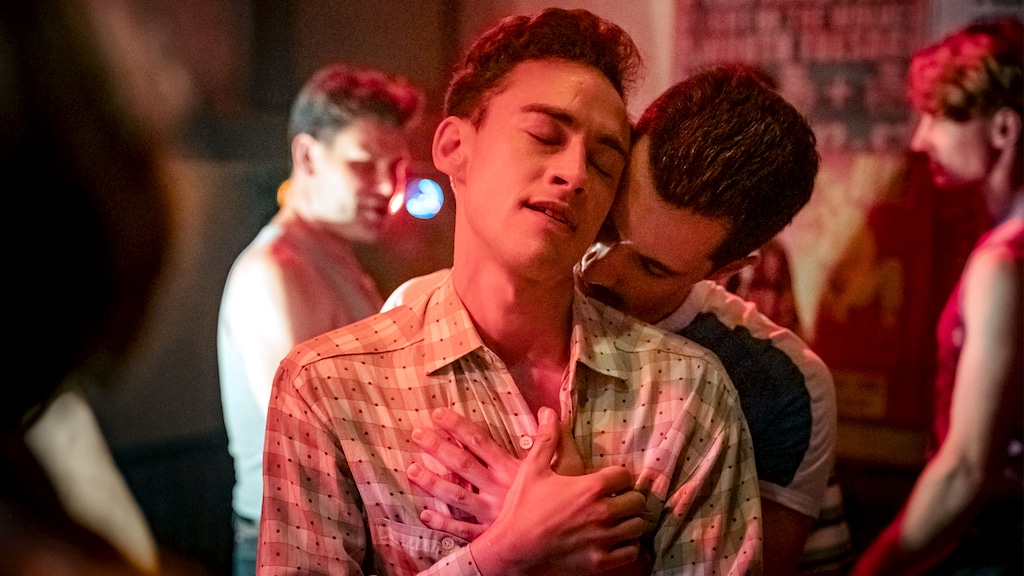
Olly Alexander in It’s A Sin (picture: Channel 4)
And yet its output is at times questionable. In January 2021, it ran an online feature about It’s a Sin, the hit Channel 4 drama about the impact of Aids on gay men in 80s London. The headline read: ‘SO MUCH SEX: It’s a Sin viewers shocked by drama’s explicit sex montage with raunchy threesome and oral sex.’
LGBTQs online were furious, comparing it to a previous Sun story praising the “hottest” straight sex scenes in Netflix’s Bridgerton, billed as ‘steamy romps’. Tellingly, The Sun quickly attempted to soften the backlash with an emotional feature headlined: ‘Sun writers reveal what It’s a Sin means to them and why EVERYONE should watch it’.
Greg insists the original headline wasn’t an act of “malicious, intentional homophobia,” explaining: “The editor in question wasn’t considering the broader social context of the show, what it’s about. Is that bad? Yes. But they were, like many content-churning journalists, using specific keywords that worked on shows in the past to get traffic.”
“It was representative of how lazy and gung-ho a lot of journalists are, especially online,” says Ryan Butcher, editor of PinkNews, when Attitude asked for his opinion on the story. “Capitalising on a moment, rage. Rage equals clicks, clicks equal ad revenue. The mainstream media is dominated by people making rash decisions, ignorant towards subjects that need sensitivity.
“I fundamentally don’t believe in traffic targets for my journalists,” he adds. “That leads to sloppy work. If I wanted loads of traffic, I’d report on what Piers Morgan says every day. But that doesn’t help. It contributes to a toxic narrative. But some of the biggest publishers have very specific targets; expectations on journalists to reach goals. The problem is top-down. I’ve no reason to believe the person who wrote that It’s a Sin story was being malicious. But it’s representative of the pressure the media landscape puts on journalists — especially young ones just starting out.”
The result is that marginalised groups can be too easily labelled with outdated tropes or offensive stereotypes in the search for clickbait.
Attitude contacted The Sun for a comment on the view that their newspaper and website are systemically anti-LGBTQ+. A spokesperson said: “The Sun publishes many different views on a range of subjects that matter to its audience, with LGBTQ+ issues and stories being one of these.
“Furthermore, The Sun is proud of its diverse newsroom, with many columnists and newsroom staff including senior executives identifying as LGBTQ+ and covering the subjects in columns and features to shine a light on positive stories from the community as well as the more difficult issues that surround them. Some of these examples include personal stories from our writers on the HIV crisis depicted in It’s a Sin, and interviews with prominent LGBTQ+ stars.
“The Sun also tries to help our audience make sense of the issues that the LGBTQ+ community face. Some of these may include debates on how best to tackle [LGBTQ+ issues] but should not be misunderstood as anti-LGBTQ+ views.”
The trans ‘issue’
Although The Sun may have made moves to ‘balance’ its initial coverage of It’s a Sin, Greg points to what he calls its “increasingly impassioned defence of J.K. Rowling’s trans rhetoric”.
And sadly, it’s far from the only offender. Transphobic content in the media is a worrying trend that is growing.
Ben Hunte, a senior reporter at Vice, is currently working on a report looking at the number of trans stories covered by the right-wing press in 2021. “In three media organisations, there were over 2,000 [trans-related] stories published. Stories based on a tiny minority of the UK population,” he told Attitude.
Former editor-in-chief of LGBTQ women’s magazine DIVA, Carrie Lyell, says: “In my eight years at DIVA, I wrote our monthly Mediawatch column, giving me insight into how mainstream media handled LGBTQIA+ stories. It’s always been poor but appears to have gotten worse in recent years with outlets I previously respected now appearing to actively fuel discrimination, particularly towards the trans community.”
The shift has also been noted by Butcher: “Not to say there isn’t homophobia in the media, but transphobia is definitely the bigger issue, I feel. Mainstream media is rotten to the core with it.”
He adds that the BBC’s ‘We’re being pressured…’ article was “two years in the making, according to what I’ve heard. People pushing against it; a lot of internal struggle and strife trying to get it shut down”.
Jane Fae, chair of Trans Media Watch, a charity dedicated to improving coverage of trans and intersex issues, agrees with Butcher. “The BBC and the print press is absolutely riddled with it,” she says, describing a deluge of anti-trans content.
She praises inclusive media like PinkNews for balancing out the coverage but, referring to the sheer workforce of content factories like the Daily Mail website, adds: “The last two weeks of 2021, there were more articles per week involving trans people on MailOnline than on PinkNews. What they’re almost always focused on is trans women. There are about 30,000 out trans women in the UK, [and yet there are] hundreds of pieces per year in The Times, The Telegraph, the Mail. It’s appalling.
“I don’t think it’s coordinated,” Fae says of the culture. “But I do think there’s a vicious anti-trans sentiment amongst senior staff of the national press. There’s nothing in it for people lower down the food chain to make a stand. Why risk your career standing up for ‘a group of weirdos who dress in skirts’?”
Asked to describe the effect of such coverage on trans people, a measured Fae says: “Dreadful. But I’m always wary of [elaborating]. Some rejoice in hearing that trans people are suffering: ‘We’re winning! We’re succeeding!’”
Balance and bias
The BBC has come under fire in recent years for its blind pursuit of ‘balance’. This has meant that a story or programme about trans people must also include the opinions of those with anti-trans views. The approach was criticised by Ofcom chief executive Melanie Dawes as “extremely inappropriate” in a Digital, Culture, Media and Sport Committee in December 2020.
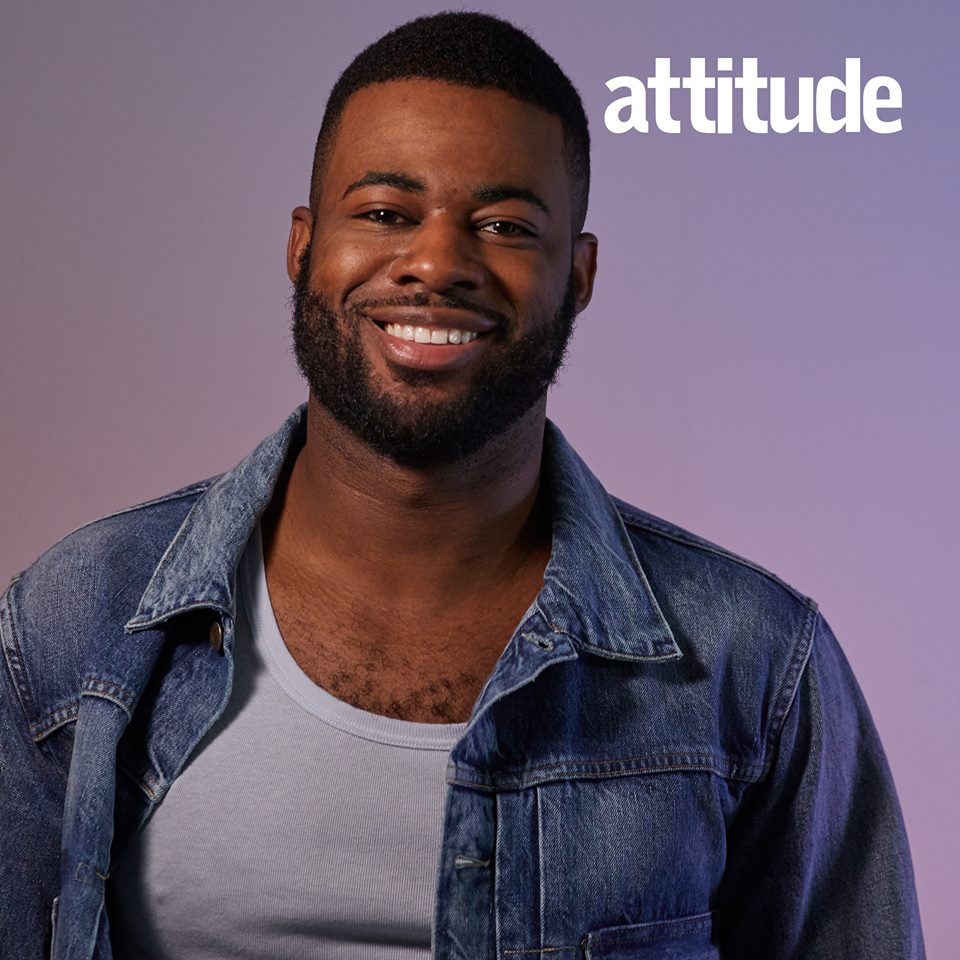
Ben Hunte is making waves with his journalistic work at Vice (picture: Attitude)
Hunte previously worked for the BBC as its first LGBT correspondent, a job he loved. He tells Attitude: “It gave me an opportunity to platform people’s experiences on an international stage.”
Comparing working for Vice with his former employment, he says: “Even though I’m still doing balanced journalism and hearing from all sides, it doesn’t need to be as impartial as it was at the BBC. That means, for a story about young trans people, for instance, I can hear from them without necessarily needing to hear from a group who believe gender identity doesn’t exist.”
He points out the sad reality that negative news stories often get more attention than positive ones. “Working at the BBC, I’d sometimes do reports I knew would make impact, and reports I hoped would, but maybe they didn’t. A negative thing with the BBC would happen, [it] would be everywhere; people would say, ‘Oh, but the BBC doesn’t do anything for LGBTQ people!’ Negative stories travel faster, further. That’s annoying as a journalist.”
Butcher adds his view: “The BBC’s an interesting example — platforming what many people regard as hate groups in the name of balance. It’s absurd, and commonplace now. Complaints are dismissed by the right as being political correctness or ‘woke’.”
The BBC’s impartiality efforts also made headlines in late 2021. After the corporation was accused of being institutionally transphobic, Fran Unsworth, then BBC News’s Director of News and Current Affairs, reportedly told BBC Pride network members: “You’ll hear things you don’t personally like and see things you don’t like — that’s what the BBC is, and you have to get used to that.”
In the light of this, what is it like to work for the BBC as an LGBTQ+ journalist? Shivani Dave, who came out as non-binary live on air while working as a BBC presenter in 2020, provides an insight. They were told they weren’t allowed to “tweet anything that could be seen as not impartial on my account about trans lives. That was a hard pill to swallow. It’s one of the reasons I ended up leaving the BBC. I couldn’t make simple statements like ‘Black Lives Matter’ or ‘Trans women are women’ because of how it would be perceived by licence fee-payers.
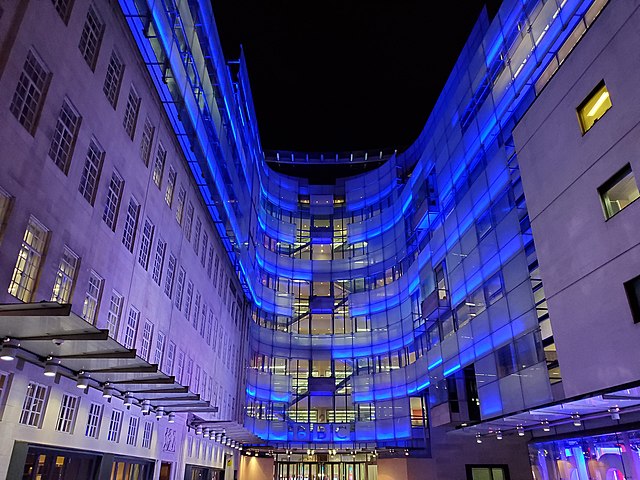
The BBC headquarters in central London (picture: Wiki)
“Additionally, I wasn’t allowed to report on trans issues while I was at the BBC — I was told I was too personally connected to the trans community to be able to be impartial. That’s not a direct quote, but pretty much what they told me. You wouldn’t say to a white person: ‘You’re not allowed to report on issues affecting Black [people] and people of colour.’”
Still, their experience of the corporation — which, to its credit, in December announced the appointment of Lauren Moss as LGBT and Identity Correspondent — wasn’t entirely negative. “I still have lots of good friends who work there, who were and are really supportive. My manager sent an email to the whole team saying: ‘These are Shivani’s new pronouns, please can we use them.’ Everyone was very supportive on an individual basis.
“[But] articles like Lowbridge’s are really disappointing as it feels like an attack on a community I’m part of,” they add. “An attack on trans women is an attack on all LGBTQs.”
Asked for its message to LGBTQs and allies who believe its coverage is systemically anti-LGBTQ, a spokesperson for the BBC said: “We reject this characterisation of our coverage. The BBC regularly reports on LGBTQ+ issues, reflecting a range of views and perspective, on TV, radio and online. We don’t bar journalists from writing about these topics, stories are always pursued on their merits and the judgements of our news teams.
“We support all our colleagues to have fulfilling careers at the BBC and we’re fully committed to being an industry-leading employer on LGBTQ+ inclusion.”
On the edge
The Guardian is another outlet whose coverage is raising eyebrows. Once considered a haven for LGBTQs, it’s now known for platforming some of media’s most prominent gender-critical voices.
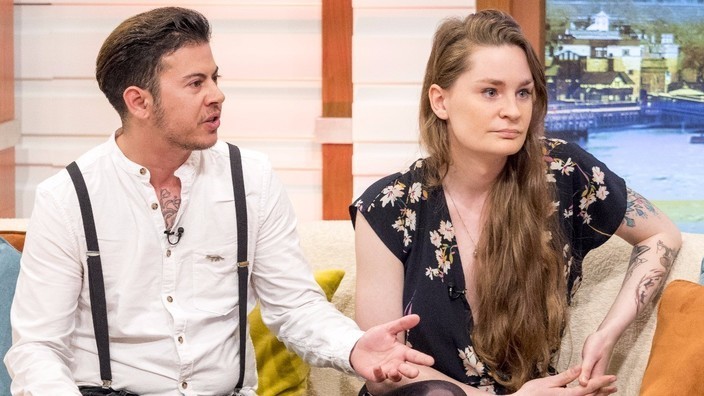
Fox Fisher and partner Owl appearing on Good Morning Britain (picture: ITV)
Artist, author and trans activist Fox Fisher, who identifies as queer, non-binary and trans masc, says: “The Guardian seems 50/50 — disappointing when it used to seem so much more supportive of trans rights.”
Times have indeed changed. In 2020, staff at the left-leaning title signed a letter to the editor criticising “transphobic content”.
An ex-Guardian staffer who wishes to remain anonymous told Attitude: “I loved working at The Guardian but the first anti-trans editorial in 2018 changed everything. I still got on great with my immediate colleagues and there was no overt hostility — we know from internal discussions and organising that a large majority of Guardian staff are actually trans allies — but the atmosphere for LGBTQ+ staff felt different after that. You realise that some colleagues are actively campaigning against your rights, that they think awful, unfounded things about you and that on the outside, The Guardian’s anti-LGBT reputation is growing and spreading. It’s heartbreaking.
“I was aware of other trans people leaving the organisation and I eventually felt like I had no choice, either. Working for a company that might say inclusive things internally but then blast exclusionary misinformation externally — something over which most staff had no say or recourse — was wearing me down and damaging my mental health. I couldn’t stay and maintain my dignity or self-esteem at the same time.
“The situation felt, and still feels, totally hopeless. The only way for the paper to move forward and recover its reputation is to fully revoke its current anti-trans editorial position. But that feels like an impossibility right now. One of the paper’s core values is: ‘We stand up for what we believe is right, not what is easy’ and I’d say that’s its biggest failure.”
Attitude asked the newspaper: “What’s your message to LGBTQs and allies who believe The Guardian is systemically anti-LGBTQ?” and received this response from a Guardian News & Media spokesperson: “We are a news organisation that’s always been committed to representing a wide range of views on many topics in our coverage. Our editorial remit is to engage with the important issues of the day, and to never shy away from difficult or divisive subjects — and we understand there will always be debate around the issues we cover.
“No organisation is perfect and The Guardian continues to do as much as any major news organisation to highlight the rights and lives of LGBTQ people in depth, and with empathy…. We have worked hard to make The Guardian an inclusive environment for all staff over many years, and to support our LGBTQ employees.”
Hostile territory
Hunte comments on the predicament LGBTQ+ journalists who work for some of these media outlets find themselves in.
Referring to the three organisations whose trans stories he is compiling a report on, he says: “To be a trans journalist working within these places, or non-binary, or to be LGBTQ at all — I know people who feel they can’t be themselves at work or don’t feel they can report on things truly and honestly, because their own experiences are being challenged by the people paying their bills.”
Like Shivani Dave and the anonymous Guardian journalist, Fisher felt compelled to vote with their feet. They used to share a literary agency, the Blair Partnership, with J.K. Rowling, whose opinions on trans people have generated global headlines. “It’s hard to describe the distress and pain caused,” says Fisher of the Harry Potter author’s statements. “But those views exist among a relentless media onslaught that’s constantly vilifying trans people and diminishes our strive for equality.”
In 2020, after asking the agency’s management to reaffirm its stance on trans rights, he left due to feeling “unsupported”.
Lyell felt so strongly about the mainstream media’s coverage of trans people that it was “one of the reasons” they left journalism. They now work as digital engagement officer of Mermaids, a charity and advocacy organisation supporting gender-variant and transgender youth.
“Writing about this stuff wasn’t enough,” they say. “I needed to do more, be on the frontline. Being at Mermaids has brought home how much of a devastating impact poor reporting and media transphobia have on young trans people, their families. It’s crucial LGBTQIA+ people tell their own stories in their own words. That’s why publications like Attitude, DIVA and PinkNews are so important, and more so as mainstream outlets continue chasing clicks at the expense of marginalised communities.”
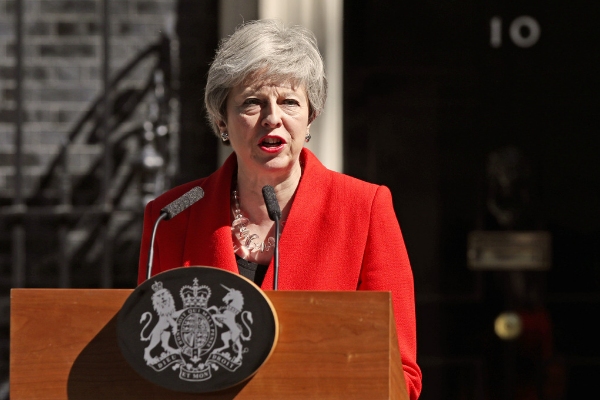
Hunte points to a change in Conservative government priorities since Theresa May (picture: Wiki)
What’s the story?
What has caused this increase in anti-LGBTQ+ feeling? Hunte felt there was a sea change when Boris Johnson took up residence in Downing Street in 2019. “The nature of LGBT rights has completely changed,” he says. “In 2018 I was in Downing Street at a summer party where Theresa May talked about an LGBT action plan; these incredible things she was going to be doing. Then the government changed, the situation changed. Suddenly, trans people were fighting for their rights, conversion therapy wasn’t being banned, there wasn’t a call for same-sex marriage in Northern Ireland. My role changed from celebrating a community to uncovering traumatic stuff.”
Fisher notes a “step back” from an era when Orange Is the New Black’s Laverne Cox appeared on the cover of TIME (‘The Transgender Tipping Point’ issue) in 2015.
“What we’re seeing today is the knock-on effects of the media in a moral panic over trans rights,” they say. “Trans lives being debated by cis people to a cis audience. What’s worse is a specific group of cis people — rarely experts in gender — are given large platforms to speak, while at the same time claiming they’re being ‘silenced’.”
Fisher feels stuck in a ‘damned if you do, damned if you don’t’ situation with responding to press requests, as “trans rights are often framed as a debate. If enough trans people approached to comment refuse to partake, our hope is the fearmongering story doesn’t run.”
THE SUN FRONT PAGE: ‘The skirt on the drag queen goes swish swish swish’ #skypapers pic.twitter.com/6mg0F795kH
— Sky News (@SkyNews) November 12, 2017
Another reason for the problem is simply the lack of diversity in newsrooms.
“The main problem with UK journalism is it’s predominantly white, straight and male,” says Butcher. “When you don’t have diverse newsrooms and editorial teams — in terms of sexuality, gender, race, class — the content is reflective of the people working on it. It’s about authenticity; letting people tell their own stories. You don’t get that in mainstream media. The people in it come from backgrounds of great privilege. If there were more opportunities for trans people in the newsrooms to dispel these myths and toxic rhetoric, there might be less transphobia.”
DIVA’s gender-fluid junior staff writer, Nic Crosara agrees: “Employing with inclusivity in mind is a great way to combat this. Growing up, I never thought I’d work within the media because it never looked like a possibility for me. Everyone deserves a seat at the table, for their stories to be heard. Inclusivity leads to better solidarity, allyship and community. We’re stronger together.”
It should be said that not all mainstream media outlets are hostile to the trans community. Fisher spotlights “Vice and The Independent [for] making efforts to include trans voices. My partner, a trans femme, is a long-time columnist for the Metro [website].”
Yet they are still the minority. Trans journalists being alienated from working for the best-known media outlets, who have the largest audiences and therefore the greatest influence, is extremely concerning. It means authentic trans voices are being silenced just as we need them to be louder. Who will tell their stories if they are not there to tell them?
Craggs says: “We need people who aren’t trans — in the media, in everyday life — to speak up for us. Just like how we’re a tiny minority in the media, trans people in general make up just 1 per cent of the population. We have no chance without allies on our side. We’d have your back — we need you to have ours.”
Attitude also approached the following media outlets for a comment. A spokesperson for The Times declined to comment. The Daily Mail and The Daily Telegraph were also approached for a comment but Attitude did not hear back in time for publication.
What can you do to help?
João Espírito-Santo, Trans People of Colour Youth Engagement Officer at Mermaids on how to combat anti-LGBTQ sentiment in the mainstream media:
“The most important advice is to constantly assess what you invest energy into. We’re often pushed into action out of a place of anger towards injustice, either by personally experiencing it or by being exposed to other people’s hardships. This anger is justified and deserves to be honoured. However, it’s important to reflect on how we channel it.
“If we allow ourselves to only advocate for trans and queer rights when in response to transphobes on social media or people invested in chronically antagonising us, we’ll be kept in a reactive loop giving more airtime to endless surface-level debates, instead of on how trans people are not predators; how we deserve basic human decency.
“This can easily lead us into looking at the trans and queer struggle in a vacuum, while sending us into burnout, without bringing any substantial improvements for trans people. Trans and queer joy is radical and essential to keep our activism sustainable, so we can’t forget to invest in dedicated initiatives and spaces for our communities’ wellbeing.
“Direct action can include organising to write mass complaints or signing open letters as a response to queer-phobic pieces of media. Following that, contributing to protests such as the demos that took place in front of the BBC’s headquarters, either by joining them or amplifying them through our networks.
Liberation starts with the mind. Actively looking up resources and spaces like books, articles, podcasts, documentaries, educational TikTok accounts, book clubs or archives that help us contextualise trans struggle as a working-class struggle, a Black and Brown struggle, a feminist struggle, as a police and Surveillance State matter, and so on is the first step to start building movements of solidarity. Solidarity towards liberation for all is our biggest strength. A great place to start [learning] is Shon Faye’s The Transgender Issue: An Argument for Justice and What Can White People Do Next: From Allyship to Coalition by Emma Dabiri.”
